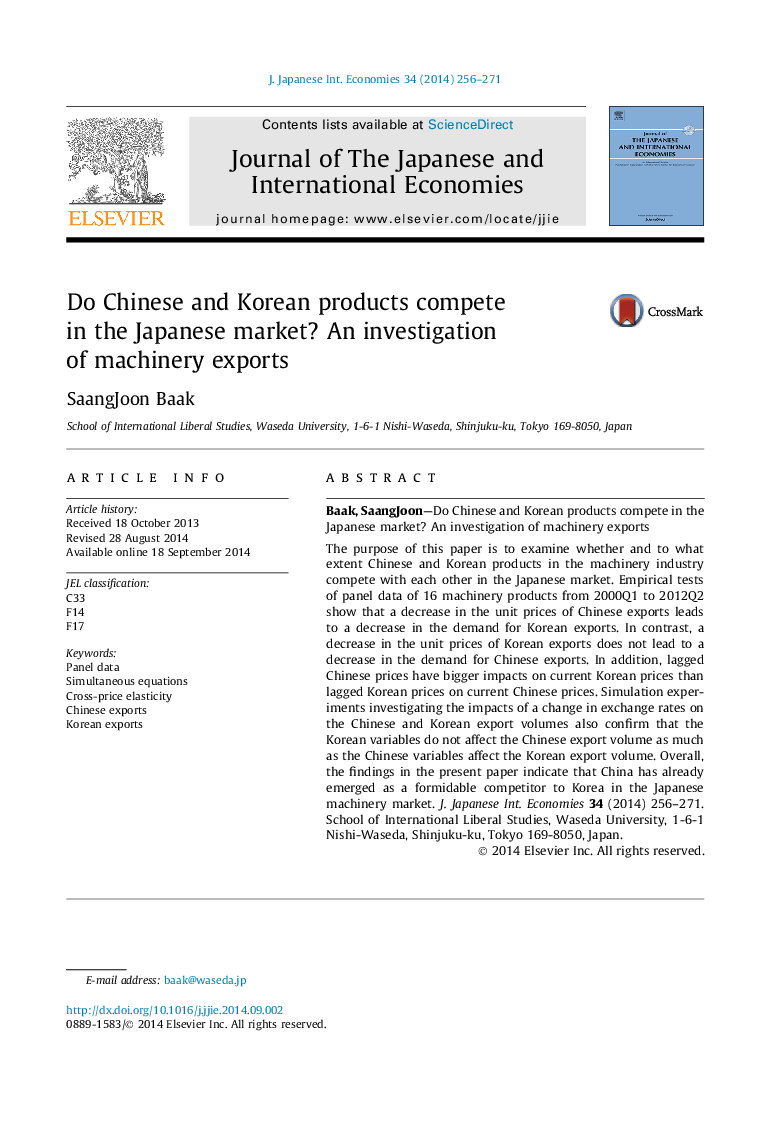| Article ID | Journal | Published Year | Pages | File Type |
|---|---|---|---|---|
| 964494 | Journal of the Japanese and International Economies | 2014 | 16 Pages |
•We estimate the demand and supply equations of Chinese and Korean exports to Japan.•Lower Chinese prices lead to a decrease in demand for Korean exports.•Lower Korean prices do not lead to a decrease in demand for Chinese exports.•Chinese exchange rates affect the Korean export volume substantially.•China is a formidable competitor to Korea in the Japanese machinery market.
The purpose of this paper is to examine whether and to what extent Chinese and Korean products in the machinery industry compete with each other in the Japanese market. Empirical tests of panel data of 16 machinery products from 2000Q1 to 2012Q2 show that a decrease in the unit prices of Chinese exports leads to a decrease in the demand for Korean exports. In contrast, a decrease in the unit prices of Korean exports does not lead to a decrease in the demand for Chinese exports. In addition, lagged Chinese prices have bigger impacts on current Korean prices than lagged Korean prices on current Chinese prices. Simulation experiments investigating the impacts of a change in exchange rates on the Chinese and Korean export volumes also confirm that the Korean variables do not affect the Chinese export volume as much as the Chinese variables affect the Korean export volume. Overall, the findings in the present paper indicate that China has already emerged as a formidable competitor to Korea in the Japanese machinery market.
